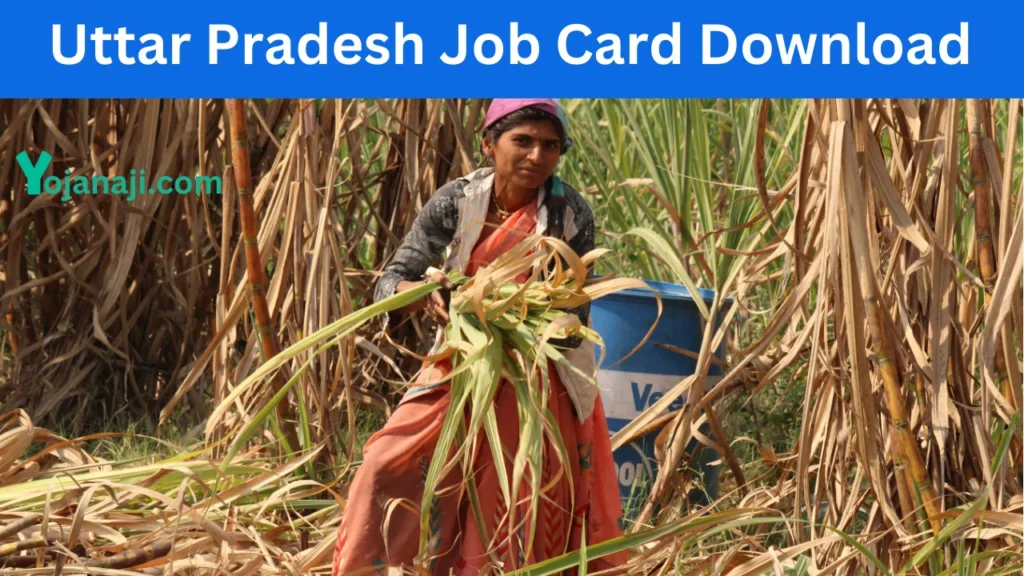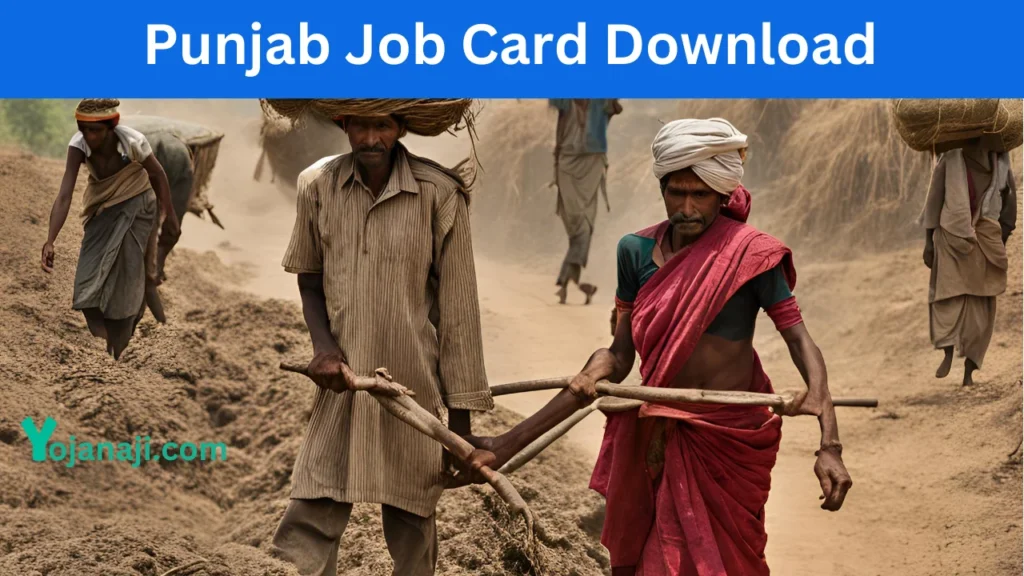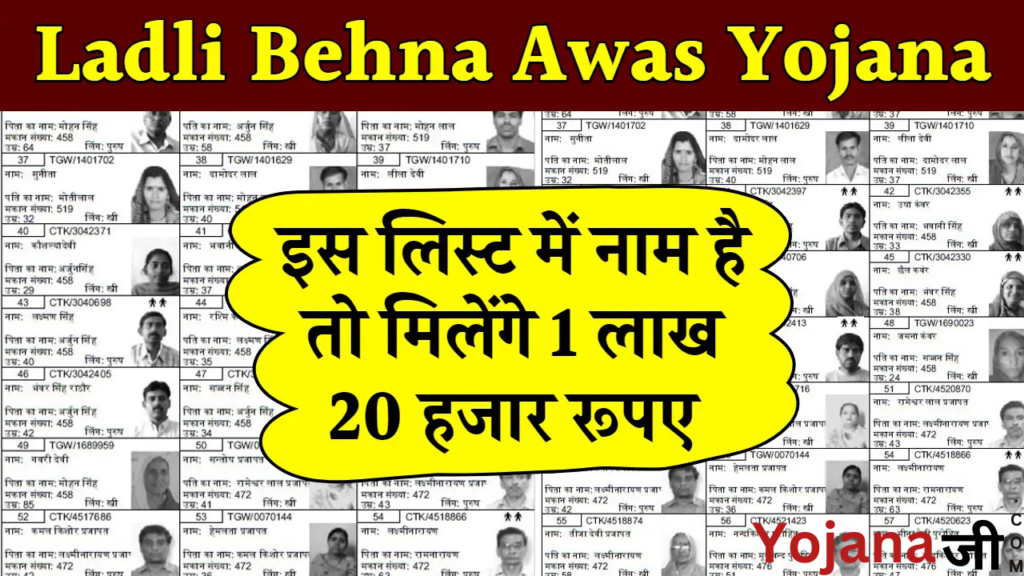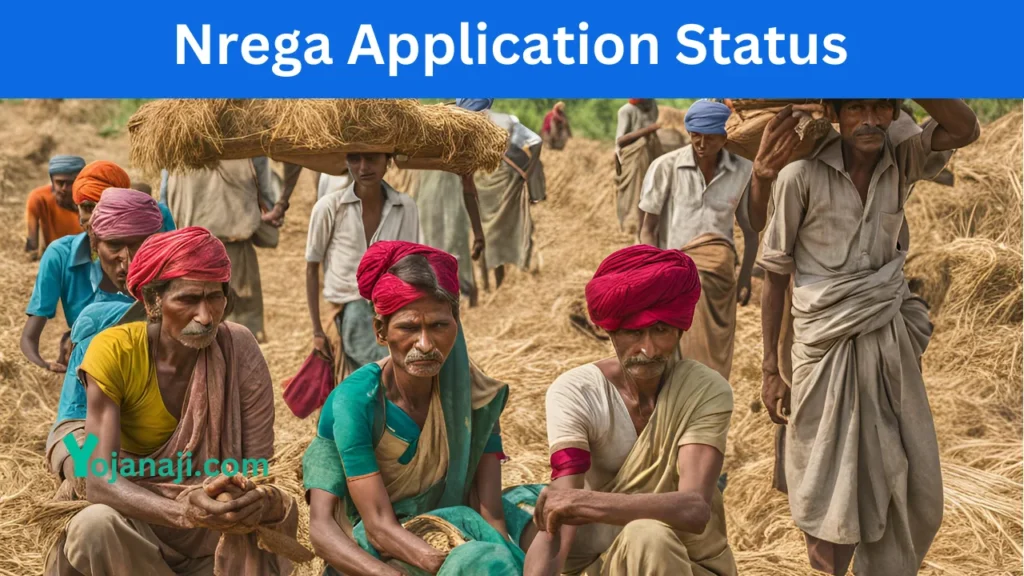Madhya Pradesh, a state known for its rich cultural heritage and vibrant traditions, also grapples with significant socio-economic challenges, particularly in its rural areas. The Mahatma Gandhi National Rural Employment Guarantee Act (MGNREGA) has emerged as a beacon of hope for many in these regions, offering guaranteed employment and a semblance of financial stability. Central to this initiative is the Madhya Pradesh Job Card List, which plays a pivotal role in linking rural households with employment opportunities under MGNREGA. This detailed exploration delves into the significance, benefits, and processes associated with the Madhya Pradesh Job Card List, highlighting its impact on rural empowerment and socio-economic development.
The Significance of the Madhya Pradesh Job Card List
The Madhya Pradesh Job Card List is an integral part of the MGNREGA scheme, aimed at providing at least 100 days of wage employment to rural households every year. This initiative is particularly crucial in a state where a large proportion of the population relies on agriculture and other seasonal employment. The job card serves as an identification document for individuals seeking work under MGNREGA, ensuring they can access the employment opportunities available to them.
In a state with diverse geographical and climatic conditions, the job card list is a critical tool for addressing the variability in agricultural income and employment. It ensures that rural households have a safety net during lean periods, reducing their vulnerability to economic shocks. By guaranteeing employment, the job card list not only provides immediate financial relief but also empowers individuals to participate actively in the local economy, fostering a sense of self-reliance and community development.
The Madhya Pradesh Job Card List plays a vital role in the successful implementation of the Mahatma Gandhi National Rural Employment Guarantee Act (MGNREGA) in the state. As a key document for accessing guaranteed employment, the Job Card List ensures that rural households can participate in the scheme and receive their rightful benefits. Its significance extends beyond just providing employment opportunities—it acts as a tool for transparency, accountability, and empowering rural communities. Here are some of the key reasons why the Madhya Pradesh Job Card List is of great significance:
- Access to Employment: The Madhya Pradesh Job Card List is the primary document for households seeking work under MGNREGA. To be eligible for the scheme, rural households must be registered in this list. The list includes the names of all the households and individuals who have applied for a job card, which acts as proof of their entitlement to the guaranteed 100 days of wage employment. By being part of the list, workers can apply for work and be assured of job opportunities in their area.
- Ensures Transparency and Reduces Corruption: One of the most significant advantages of the Job Card List is its role in promoting transparency in the implementation of MGNREGA. The list is public and can be accessed by anyone, allowing citizens and government officials to verify the details of registered workers. This transparency discourages corruption and ensures that the benefits of the scheme are reaching the intended recipients. It also helps in reducing fraud, as any discrepancies in registration or payments can be easily identified.
- Accurate Monitoring of Employment and Wage Payments: The Madhya Pradesh Job Card List plays a critical role in tracking employment and wage payments. The list records the number of days worked by each registered household and the corresponding wages paid. This helps ensure that workers receive the correct compensation for their work. It also serves as a useful tool for monitoring the progress of the MGNREGA scheme and assessing its impact on rural employment. Workers can cross-check the details on the list to ensure that they are paid properly and on time.
- Efficient Work Allocation and Planning: Local authorities, particularly the Gram Panchayats, use the Job Card List to plan and allocate work effectively. The list helps the authorities assess the demand for employment in different areas and allocate projects accordingly. It enables them to match available work with the local workforce, ensuring that rural residents are given priority for employment under the scheme. This facilitates the efficient execution of public works and helps in the creation of sustainable infrastructure in rural areas.
- Empowerment of Rural Communities: The Madhya Pradesh Job Card List is a powerful tool for empowering rural communities. By officially recognizing households as eligible for employment under MGNREGA, it ensures that workers have access to a guaranteed income. This, in turn, enhances the economic security of rural families. Additionally, the Job Card List promotes greater civic engagement, as it encourages individuals to be more involved in the governance process and hold local authorities accountable for providing work and ensuring timely wage payments.
In conclusion, the Madhya Pradesh Job Card List is a critical instrument in ensuring the success of MGNREGA. It provides rural households with access to employment, ensures transparency, and helps monitor the distribution of wages. By serving as both a tool for accountability and a means of empowerment for rural communities, the Job Card List plays a central role in the overall effectiveness of the scheme, contributing to poverty alleviation and rural development.Benefits of the Madhya Pradesh Job Card List
The Madhya Pradesh Job Card List offers several benefits that extend beyond mere employment. One of the most significant advantages is the assurance of wage security. With the guarantee of 100 days of employment, households can plan their finances better, reducing the stress associated with uncertain income streams. This financial stability is particularly crucial for marginalized communities, who often face the brunt of economic disparities.
Furthermore, the MGNREGA scheme focuses on the creation of durable assets such as roads, water conservation structures, and irrigation facilities. Participation in these projects not only provides immediate employment but also contributes to the long-term development of rural infrastructure. Improved infrastructure, in turn, enhances agricultural productivity and access to markets, creating a positive feedback loop that boosts the local economy.
The job card list also promotes transparency and accountability in the implementation of the MGNREGA scheme. Each job cardholder is entitled to receive work within 15 days of applying, and the details of the work performed and wages earned are meticulously recorded. This process minimizes the chances of corruption and ensures that workers receive their rightful dues. The job card empowers rural workers by providing them with a formal mechanism to demand their rights, thereby fostering a culture of accountability and good governance.
The Madhya Pradesh Job Card List under the Mahatma Gandhi National Rural Employment Guarantee Act (MGNREGA) offers numerous benefits to rural households and workers in the state. It plays a critical role in ensuring that the scheme is implemented effectively, promoting transparency, and enabling workers to access their entitled benefits. Here are some of the key benefits of the Madhya Pradesh Job Card List:
- Access to Guaranteed Employment: The Madhya Pradesh Job Card List is a vital tool for workers to gain access to the guaranteed 100 days of employment under MGNREGA. The job card is issued to eligible households, and by being included in the Job Card List, workers can apply for unskilled manual work whenever needed. This helps secure a regular source of income for rural households, especially in times of distress.
- Transparency and Accountability: The Job Card List ensures transparency in the implementation of MGNREGA. Since it is publicly available, citizens and government authorities can easily verify the names of workers, their employment status, and the wages paid. This reduces the chances of corruption, manipulation, or diversion of benefits, as all transactions related to work and payments are documented and accessible.
- Tracking of Employment and Wages: The list helps in tracking the number of days worked by each household and the corresponding wages paid. It serves as an important reference for ensuring accurate payments and identifying discrepancies. Workers can cross-check their employment records and ensure that they are paid fairly for the work they have performed. In case of errors or delays, the Job Card List facilitates the process of rectification.
- Efficient Allocation of Work: By maintaining a comprehensive list of registered workers, the Gram Panchayat can efficiently plan and allocate work in rural areas. It helps in assessing the labor demand for various projects and ensures that local residents are given priority for employment. This leads to the smoother execution of rural infrastructure projects, such as road construction, water conservation, and other public works.
- Empowerment of Rural Communities: The Madhya Pradesh Job Card List empowers rural households by providing them with a formal record of their entitlements under MGNREGA. It helps individuals assert their rights to employment and wages and ensures they have access to a grievance redressal mechanism in case of delays or non-payment. This fosters a sense of ownership and confidence among rural workers, contributing to the overall upliftment of the community.
In conclusion, the Madhya Pradesh Job Card List is an essential tool for ensuring the successful implementation of MGNREGA, promoting transparency, accountability, and empowerment of rural workers. By offering clear documentation of workers' rights and entitlements, it helps in providing sustainable livelihood opportunities and contributes to the economic development of rural areas.
The Process of Obtaining a Madhya Pradesh Job Card
The process of obtaining a job card under the MGNREGA scheme in Madhya Pradesh is designed to be straightforward and accessible to all eligible households. Interested applicants must submit a written application to the Gram Panchayat, detailing the names of adult members willing to work, along with their photographs and relevant identification documents such as Aadhaar cards or voter ID cards.
Upon submission, the Gram Panchayat conducts a verification process to confirm the eligibility of the applicants. This involves a household survey to assess the socio-economic conditions of the applicants. Once verified, the job card is issued within 15 days, free of cost. The cardholder can then apply for work under the MGNREGA scheme at any time, ensuring they have access to employment opportunities when needed.
For those already in possession of a job card, applying for work is a simple process. Cardholders can submit a written request to the Gram Panchayat or participate in the Rozgar Diwas, a designated day for addressing employment-related issues. The Panchayat is obligated to provide work within 15 days of receiving the application. In cases where work is not provided, the worker is entitled to receive an unemployment allowance, ensuring that the promise of employment is upheld.
The process of obtaining a Madhya Pradesh Job Card under the Mahatma Gandhi National Rural Employment Guarantee Act (MGNREGA) is designed to be straightforward, ensuring that rural households in the state can easily register for employment. The job card is essential for accessing the benefits of the scheme, as it serves as a record of the work done and wages paid.
The process begins with the head of the household or any adult member willing to work submitting an application to the local Gram Panchayat. The application can be made in writing or orally, depending on the individual’s preference. The form should include details such as the name of the household head, names of adult family members, age, gender, and photograph of each member willing to work.
After receiving the application, the Gram Panchayat is responsible for verifying the details provided. This involves checking the applicant’s identity, residency, and willingness to perform manual labor. Verification is crucial to ensure that only eligible rural households are registered under the scheme. Once verified, the household is registered in the MGNREGA database.
Following registration, the Gram Panchayat issues a job card to the household within 15 days of receiving the application. The job card contains important details such as the names of adult members of the household, their photographs, and the registration number. It acts as an identity card for MGNREGA workers and must be presented whenever the household applies for work.
Once the job card is issued, the household can apply for work by submitting a written application to the Gram Panchayat, specifying the time and duration for which employment is required. The authorities are then obliged to provide work within 15 days of the application. If work is not provided within this period, the household becomes eligible for an unemployment allowance.
In summary, obtaining a Madhya Pradesh Job Card involves applying to the Gram Panchayat, verification of details, and issuance of the job card. This process ensures that rural households have access to guaranteed employment under MGNREGA, contributing to their financial stability and livelihood security.
Challenges and the Path Forward
Despite its numerous benefits, the implementation of the Madhya Pradesh Job Card List and the broader MGNREGA scheme faces several challenges. Issues such as delayed payments, lack of awareness among rural workers, and bureaucratic inefficiencies can hinder the scheme’s effectiveness. Addressing these challenges requires a multi-faceted approach involving government agencies, local authorities, and civil society organizations.
Raising awareness about the rights and entitlements under MGNREGA is crucial for its success. Conducting regular information campaigns and workshops can help rural workers understand how to access the benefits of the scheme. Additionally, leveraging technology to streamline the application and payment processes can reduce delays and enhance transparency. Implementing robust grievance redressal mechanisms will also ensure that workers’ concerns are promptly addressed, fostering trust in the system.
While the Madhya Pradesh Job Card List and the Mahatma Gandhi National Rural Employment Guarantee Act (MGNREGA) have played a pivotal role in alleviating rural poverty and ensuring livelihood security, several challenges still exist in the effective implementation of the scheme. These challenges impact the timely delivery of services, the proper functioning of the system, and the equitable distribution of benefits. Addressing these challenges and forging a path forward is crucial to enhancing the overall impact of the scheme.
One of the main challenges faced in Madhya Pradesh is the delay in wage payments. Rural workers often face significant delays in receiving their wages, which can cause financial hardship for families relying on the daily income from MGNREGA work. These delays are often due to bureaucratic inefficiencies, fund transfer issues between the state and central government, and technical problems in payment systems. The Direct Benefit Transfer (DBT) system, while intended to streamline payments, has had mixed results due to connectivity issues and errors in linking workers’ bank accounts.
Another challenge is the lack of adequate work opportunities in certain rural areas, especially during lean agricultural seasons. Despite the guarantee of 100 days of employment, the demand for work sometimes exceeds the available projects. This leads to a situation where households cannot secure employment under the scheme, leaving them vulnerable to economic distress. Additionally, in some areas, the type of work provided may not align with the skills or needs of the workers, reducing the scheme’s effectiveness in improving long-term livelihoods.
The quality of assets created under MGNREGA is another issue that has drawn criticism. While the scheme aims to create lasting infrastructure in rural areas, the quality of the work and the assets built sometimes falls short of expectations. Poorly executed projects can lead to wasted resources, subpar infrastructure, and a lack of long-term benefits for rural communities. This is often due to inadequate monitoring, lack of skilled supervision, or corrupt practices at the local level.
Path forward requires focused reforms and improvements in several key areas. First, improving the efficiency of wage payments through better implementation of the DBT system and ensuring the timely transfer of funds to workers’ accounts is critical. This can be achieved by enhancing the digital infrastructure in rural areas, improving connectivity, and ensuring that workers’ bank accounts are correctly linked with the system.
Second, increasing the availability of work can be addressed by diversifying the types of projects under MGNREGA, especially those that align with local needs and sustainable development goals. Projects focused on water conservation, soil health, and renewable energy could provide both employment and long-term benefits. Local authorities must engage communities in identifying work projects that are meaningful and can ensure both employment and the creation of durable assets.
Third, improving the quality of projects is essential for ensuring that the benefits of MGNREGA are lasting and impactful. This requires strengthening monitoring mechanisms at all levels and providing better training for local officials and workers. Implementing a robust quality check system and involving the community in the supervision of projects can help ensure that the infrastructure created meets the required standards.
Finally, awareness and capacity building among workers and local authorities can help in better utilization of the scheme. Educating workers about their rights, the grievance redressal mechanisms, and the application process will help reduce delays and disputes. Strengthening the capacity of Gram Panchayats to manage the implementation and monitoring of MGNREGA projects will contribute to smoother operations.
In conclusion, while challenges persist in the implementation of MGNREGA in Madhya Pradesh, a focused approach on addressing delays in payments, increasing work opportunities, improving project quality, and building capacity can lead to more effective execution. The path forward lies in improving efficiency, fostering accountability, and aligning the scheme’s objectives with the local needs of rural communities, ultimately leading to sustainable rural development and enhanced livelihood security.
- Bihar Job Card List
- NREGA MIS Report
- NREGA Registration Process
- Sukanya Samriddhi Yojana (SSY) Apply
- NREGA Job Card Download
- PM Kisan 18th Installment: पीएम किसान योजना की 2000 रुपए की 18वीं किस्त जारी, जानें कैसे करें चेक
- Rajasthan Job Card List
- Jharkhand Job Card List
- Madhya Pradesh Job Card List
- Ladli Behna Yojana 17th Installment: लाडली बहना योजना की 1250 रुपए की 17वीं किस्त जारी, जानिए कैसे चेक करें
- NREGA Job Card List
- Full Form of NREGA- National Rural Employment Guarantee Act
- NREGA Wage List
- NREGA Application Status
- PM Ujjwala Yojana 2025: फ्री गैस सिलेंडर के लिए ऑनलाइन फॉर्म भरना शुरू, जानें कैसे करें आवेदन
- Ladli Behna Awas Yojana List: लाड़ली बहना आवास योजना की नई लिस्ट जारी, अभी चेक करें अपना नाम
- Odisha Job Card List
- Chhattisgarh Job Card List
- Punjab Job Card List
- Uttar Pradesh Job Card List
Conclusion
The Madhya Pradesh Job Card List is a vital instrument in the quest for rural development and economic empowerment. By guaranteeing employment and ensuring fair wages, it provides much-needed financial stability to rural households. The scheme’s focus on creating durable assets contributes to the overall development of rural infrastructure, benefiting the entire community. While challenges remain, a proactive approach involving awareness, technology, and efficient governance can enhance the impact of the MGNREGA scheme in Madhya Pradesh. The Madhya Pradesh Job Card List, thus, stands as a testament to the state’s commitment to uplifting its rural population, providing them with the tools and opportunities to build a better future.

Tamim is a distinguished policy analyst with over 15 years of experience in analyzing, government schemes and policies. Tamim brings a wealth of knowledge and expertise in the field of social development.









